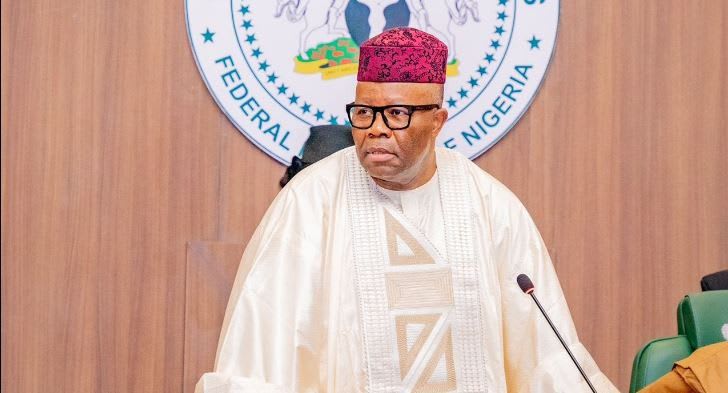
– initial investors, private equity, and organizational collaborators
By Sammy CRABBE
No city succeeds just by constructing roads and building towers. Cities that succeed in the modern era create investment ecosystems – interconnected networks of initial investors, venture capital firms, institutional funding sources, accelerators, and innovation centers that foster ongoing development.
The single square mile should not only be built physically; it needs to be financially developed. It has to draw in investors who offer more than just funds, but also connections, knowledge, trustworthiness, and a dedication over time.
A technologically advanced city without a sophisticated financial system is like a castle constructed on sand. The objective of this funding stage is straightforward: establish an investment environment that is robust, purposeful, and mutually reinforcing.
The One Square Mile should not be viewed solely as a real estate project, but rather as a business opportunity. Investors need to understand that they are not purchasing structures – they are investing in Africa's upcoming digital economy center. Early investors must be supported, venture capital must be sought with intention, and institutional funding must be approached with strategy. If the proper financial groundwork is established, money will not just arrive gradually in the city – it will flood in.
Attracting initial key investors – Drivers of progress
Every significant advancement starts with forward-thinking early adopters. For the One Square Mile, obtaining initial key investors is essential not just for financial support but also for creating trust, drawing additional funding, and generating brand enthusiasm. These key players might consist of smart city developers, technology venture capital funds, national wealth funds, diaspora communities, and privately owned equity firms focused on impactful investments.
Systematic, short-term rewards should encourage initial involvement – such as favorable lease agreements, brand recognition opportunities, tax advantages, and entry into innovative programs. However, these incentives need to be in line with the city's principles, making sure that the investment promotes inclusivity, environmental responsibility, and creativity instead of altering the original intent. Choosing investors who offer not only capital but also compatible values and credibility is essential. When executed properly, early supporters transform into advocates and drivers of progress.
Securing investment from venture capitalists and startup financing
The Innovation Hub of One Square Mile, the fintech zone, the smart health system, and the green energy clusters will rely on ongoing startup activities – which, in turn, depend on venture capital. Bringing in VC needs to be a deliberate initiative. The One Square Mile Authority should organize VC Roundtables in locations such as Accra, London, Silicon Valley, and Dubai to highlight new possibilities.
A One Square Mile Innovation Fund might invest alongside local startups, reducing initial financial risks and establishing a flow of innovation. Policies such as favorable startup visas, easier registration processes, and tax benefits for technology investors can also draw interest. Collaborations with groups like AfricArena, VC4A, and ABAN will integrate the One Square Mile into Africa's venture landscape. The goal is to bring in funding that supports entrepreneurs, rather than merely providing financial backing.
Building strong collaborations with organizations for sustained reliability
Although initial investors create momentum, institutional participants – including pension funds, sovereign wealth funds, and DFIs – offer depth and consistency. These collaborators look for good governance, openness, and sustained profits. Infrastructure initiatives – such as fiber networks, water purification systems, transportation, and renewable energy sources – need to be designed to draw in these types of investors.
Long-term leases, annuity systems, and green bonds are likely to attract risk-averse organizations. Clear governance, verified financial reports, public-private partnership structures, and live performance tracking tools will help enhance confidence. Ghana's local pension funds should be utilized initially to establish a domestic example before involving foreign entities. When these institutions invest, they offer more than just funding—they also provide structure, credibility, and oversight.
Designing appropriate financial instruments
To accommodate various investor profiles, One Square Mile needs to create customized investment options. A Real Estate Investment Trust (REIT) would enable wide-scale involvement in the city's real estate growth without requiring direct property ownership. An Infrastructure Debt Fund might appeal to investors looking for steady, contract-based returns in the fixed-income sector.
A Social Impact Fund has the potential to attract funding for affordable housing, education, and local services, achieving a balance between social and financial results. Such funds need to be open about their operations, promoted on a global scale, and in line with worldwide standards to maintain investor trust and ongoing participation.
Branding the investment opportunity
In addition to organizing deals, the city needs to strongly promote itself as an attractive place for investment. This goes beyond sleek advertising – it involves genuine narrative-building: showcasing personal stories, achievements of startups, and key innovation accomplishments. The yearly One Square Mile Investment Summits should bring together investors, business owners, and international media to demonstrate progress.
Participation in international investor gatherings – including the Africa Investment Forum, Abu Dhabi Sustainability Week, and CES – will enhance exposure. By doing so, One Square Mile positions itself not only as an African innovation center, but also as a worldwide attraction for investment.
Conclusion – From a city layout to a capital hub
Successful cities draw more than just technology – they draw faith. By nurturing initial investors, obtaining venture capital, involving institutional collaborators, and creating inclusive investment structures, the One Square Mile can serve as a lure for international funding. Similar to Singapore, Dubai, or Austin, it can develop into a dynamic environment where finance, expertise, and creativity support each other. The One Square Mile should not only focus on being constructed – it should strive to be the most attractive square mile in Africa, providing not only profits, but also transformation and possibilities.
>>>the author is a PhD candidate focusing on blockchains and decentralized finance at the University of Bradford. he possesses an MBA in International Marketing and a postgraduate research certificate from the International University of Monaco. sammy was the inaugural president of the ghana business outsourcing association and pioneered africa's first data entry operation and ghana's first medical transcription company. he can be contacted throughsammyomanye@gmail.com
Provided by SyndiGate Media Inc.Syndigate.info).










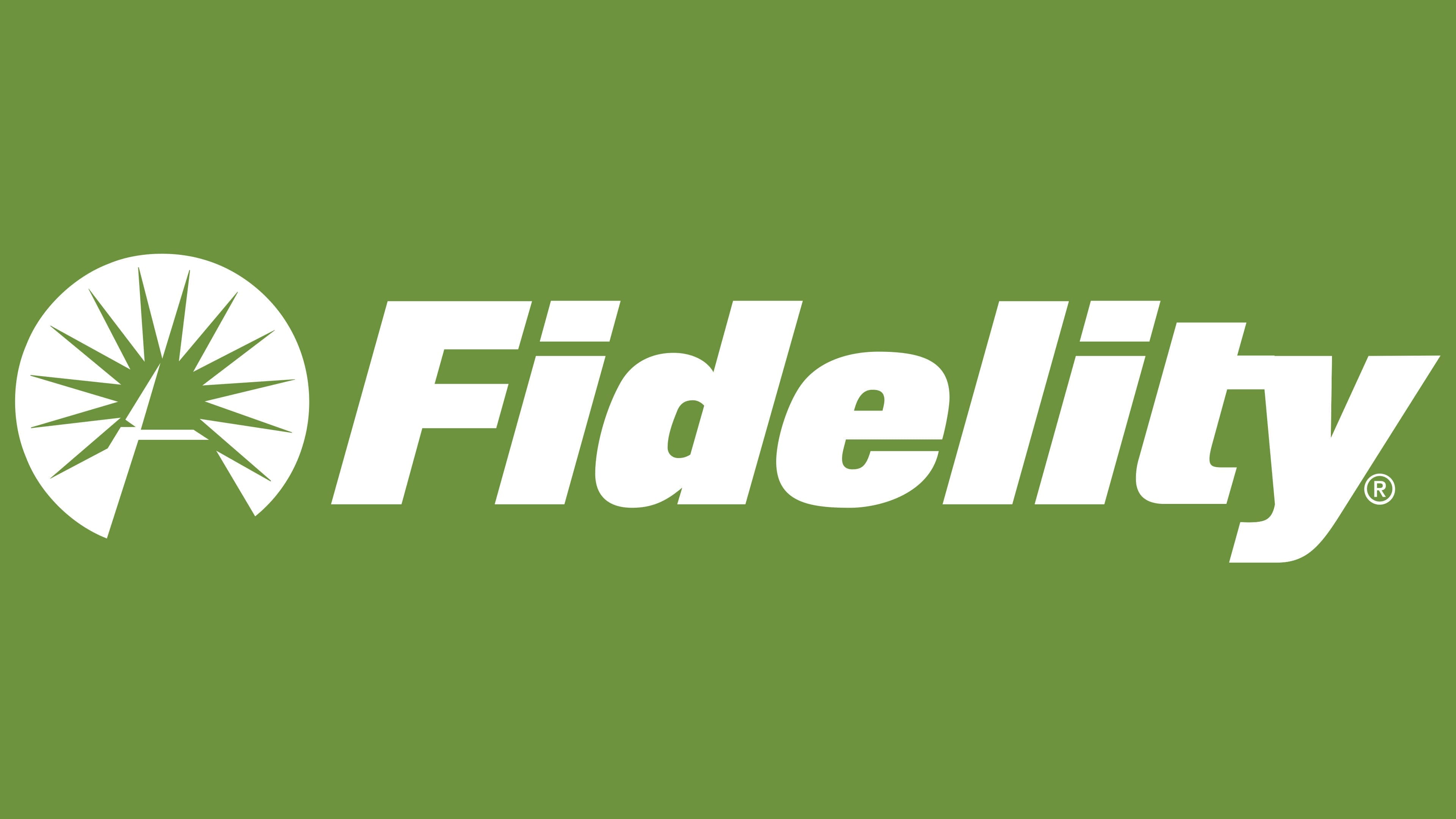
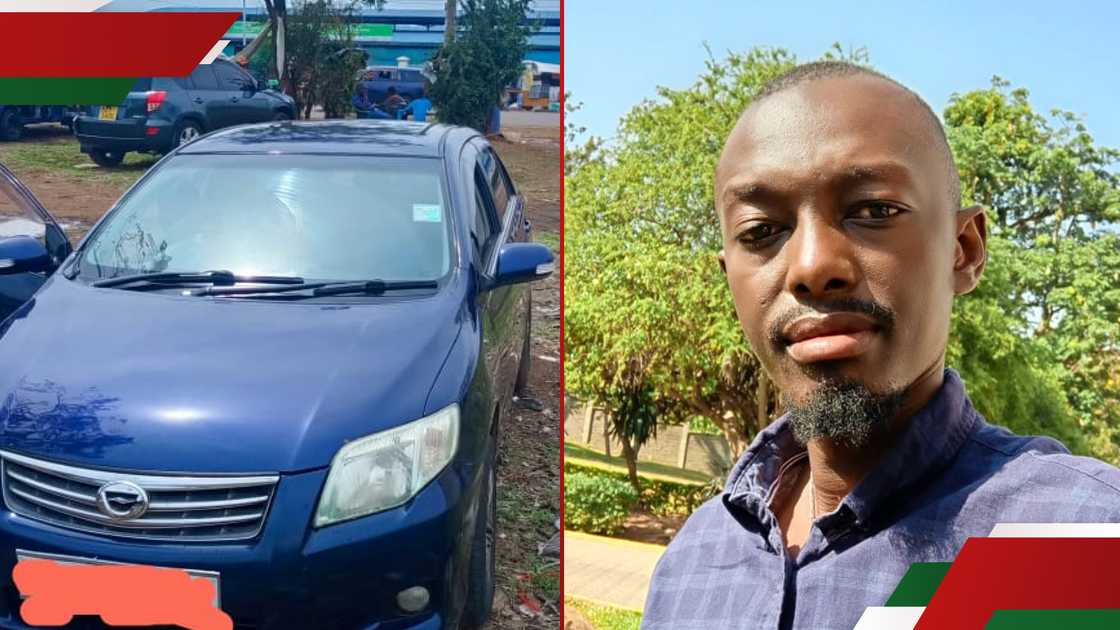


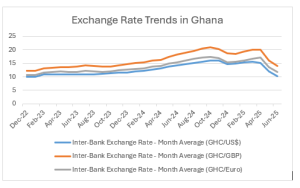




 Ideas often emerge to solve problems. What were the initial challenges you faced, and what opportunity did you see in the market? I started building NALA in 2017. It wasn't an easy path; I built, failed, rebuilt, and failed again. In April 2018, we launched a USSD-based app to help users manage mobile money more efficiently. It didn’t perform well. However, we reached number one on the Play Store in Tanzania, and then we received a cease and desist letter from the country's largest telecom operator, accusing us of stealing customer PINs. Around the same time, I was called in by the central bank to explain how our technology worked. It was a frustrating moment, especially as a young innovator, around 24 or 25 years old, trying to solve real issues. How did you manage to shift from a mobile money management app to international remittances? Pivoting was challenging; no one likes to fail. Moving from domestic payments to cross-border remittances was a tough decision, especially since I had never lived in the UK before. But then the COVID-19 pandemic hit, and we began seeing a global shift: more people preferred digital channels for sending money. That’s when I noticed two important trends. First, population growth in Africa and Asia was accelerating. Africa has about 1.2 billion people and is expected to reach 2.5 billion by 2050, with the world's largest workforce. Asia showed similar patterns. Second, with population growth comes increased migration. Every year, approximately 1.6 million Indians and 1.1 million Africans leave their home countries in search of opportunities abroad. And when people migrate, money follows, along with trade. We realized there was a massive opportunity to build a financial infrastructure that serves this global movement of people and money. Today, NALA is one of the largest remittance companies in Africa. We handle over $1 billion in annual transfers to Africa and Asia. More importantly, we are contributing meaningfully to local economies. There have been conflicting reports regarding Nala's decision not to base operations in Tanzania. What's the real story? People say what they want because it sells. It's frustrating to see misinformation, especially when no one asks for my side. I did apply for a license in Tanzania—it just took longer than in other markets. When you raise foreign capital, investors expect results. We got approval faster in Kenya with a letter of no objection from the Central Bank, so we launched there first. That's just business. Kenya also has stronger tech talent. Today, we do have an office in Tanzania and local employees. But Nala doesn't have a single headquarters. If we go by revenue, the U.S. would be our HQ. By headcount, it's the UK. By impact, it's Africa. We operate in 11 countries in Africa, 19 in Europe and North America, and four in Asia. We have an office in Nairobi for several reasons. One is that the UK is where we started, and the first country that gave us permission to send money to was Kenya. While I was waiting for approval from Tanzania's central bank, we received our license in Kenya, so that's where we had to build our support base, as the number of customers was growing rapidly. It took about a year and a half to get regulatory approval in Tanzania, but only two to three months in Kenya. As a tech company, time is your enemy, and speed wins. Another reason we built a customer support base in Kenya is language. In Tanzania, English proficiency isn't as widespread as it is in Kenya, so hiring staff with the required level of English would have been much more expensive. My decision was based on market dynamics, customer growth, and language efficiency. Some government representatives have claimed to be in talks with you to bring Nala home. What's your response? A lot of them are lying. I hear claims being made in Parliament by people I've never even met. If someone really wants to solve problems, they can just call me. Let's solve it together. You entered a remittance space dominated by companies such as Western Union and MoneyGram. What gave you the confidence to take them on? I was told not to do this business many times. I've got emails and WhatsApp messages warning me I'd fail. But I had a team that believed in the vision. We decided to try. If it worked, great. If it didn't, at least we tried. Too many people just talk and never launch. Truth is, we could still fail. I tell my team all the time: we're still a small company with a long way to go. What gave you the conviction that this could work? I pray. But full conviction is impossible; you can always be wrong. Indecisiveness, however, is too expensive. I ask God for wisdom, strength, and understanding. Then we give it our best. As long as you know you tried your best, you're already closer to success. Nala is known for blending local market expertise with global experience. What does that look like practically? Talent and opportunities are everywhere. What gets interesting is when you bring together someone who's worked in mobile money in East Africa, someone from digital banking in London, and someone from Singapore. When you put them in the same room, something magical happens. It stimulates creativity and problem-solving in a way that's really customer-focused. That's what excites me about how we're building Nala. Let's talk about the talent gap in tech and financial services across Africa. How much of a challenge is this for your business, and is the situation improving? I don't think we take software engineering or computer science seriously enough in Tanzania. If I were in the Ministry of Education, I'd make it mandatory in the school syllabus from an early age. Not everyone will love it, and that's okay, but we need to stimulate minds early on. Also, we need to create policies that bring talent into Tanzania. Look at the UK's Tech Nation visa or what Dubai is doing with digital nomad visas. They bring in smart people who raise the average quality of local talent. Tanzania needs to move in that direction if we want to become competitive in tech. Africa continues to lose tech talent to Western markets that offer higher pay. How do you respond to that dynamic? I think more people should leave Africa for better opportunities abroad. We don't have enough local jobs. Take Kenya, for example. Its biggest export is tea, around $1.2 billion in 2023. But Kenyan diaspora sent back $4 billion in remittances in the same year. So is talent Kenya's greatest export? Possibly. We should view migration as an opportunity, not a loss. Doesn't this migration risk widening the local talent gap even further? Not necessarily. You can solve it in other ways. Bring in global talent with digital nomad visas. Offer tax incentives. These people will spend locally and raise the level of discussion and skill-sharing. If they live in Tanzania, they'll go to local hackathons, tech meetups, and share knowledge. That's how ecosystems grow. What is your view on Tanzania's updated foreign policy and the introduction of special status for the diaspora? I know it's a sensitive topic, but I believe Tanzania should enable dual citizenship. I've seen the impact of this across the markets we work in; Uganda has dual citizenship, so does Kenya. It enables more trade and investment back home. Special status is a step forward, but the real question is: how do we get Tanzanians abroad to build more businesses at home? From January to June this year, African startups raised around $1 billion in VC funding, but Tanzania didn't feature prominently. Why are we missing from that narrative, and what needs to change? There are several systemic issues. Do we have scaled tech companies? Do our policies support founders? Do we have an ecosystem that helps startups grow? Most people blame regulation, but it's more than that. One big issue is language, English. Most software is in English, but we teach it too late in our public schools. Compare that to Kenya, where English is introduced much earlier. Language builds trust. If a Tanzanian founder struggles to express themselves during a pitch, it affects investor confidence. That needs to be addressed at a national level. There's been concern about startup founders losing equity with every round of funding. What's your take? Raising debt is tough, and people have lost a lot of money trying. At NALA, all the fundraising we've done so far has been equity-based, which means my shareholding has reduced with each round. Today, I'm no longer the majority shareholder. That said, we're considering our first debt round this year. Are you worried about losing control of the company? There's always a risk, not just in Africa, but globally, and not just in tech, but in every kind of business. It's tough. I've seen friends who spent 10 to 15 years building companies and ended up with almost nothing. That's a reality we face. The key is alignment, with your board, with your team. Everyone must be on the same page. How difficult is it for startups in Africa to raise capital? It's very difficult. Raising money isn't the reward. When we raised $40 million last year, one of my board members told me, "Benji, the chef doesn't celebrate getting ingredients. What matters is what you cook." Raising capital in Africa is tough. Many investors associate the continent with instability, war, and disease. You have to constantly work to change that perception and build trust. When you take investor money, it's not charity; it comes with pressure and expectations. Every boss has a boss, and I do too. Honestly, my hardest market in Asia was easierSyndigate.info).
Ideas often emerge to solve problems. What were the initial challenges you faced, and what opportunity did you see in the market? I started building NALA in 2017. It wasn't an easy path; I built, failed, rebuilt, and failed again. In April 2018, we launched a USSD-based app to help users manage mobile money more efficiently. It didn’t perform well. However, we reached number one on the Play Store in Tanzania, and then we received a cease and desist letter from the country's largest telecom operator, accusing us of stealing customer PINs. Around the same time, I was called in by the central bank to explain how our technology worked. It was a frustrating moment, especially as a young innovator, around 24 or 25 years old, trying to solve real issues. How did you manage to shift from a mobile money management app to international remittances? Pivoting was challenging; no one likes to fail. Moving from domestic payments to cross-border remittances was a tough decision, especially since I had never lived in the UK before. But then the COVID-19 pandemic hit, and we began seeing a global shift: more people preferred digital channels for sending money. That’s when I noticed two important trends. First, population growth in Africa and Asia was accelerating. Africa has about 1.2 billion people and is expected to reach 2.5 billion by 2050, with the world's largest workforce. Asia showed similar patterns. Second, with population growth comes increased migration. Every year, approximately 1.6 million Indians and 1.1 million Africans leave their home countries in search of opportunities abroad. And when people migrate, money follows, along with trade. We realized there was a massive opportunity to build a financial infrastructure that serves this global movement of people and money. Today, NALA is one of the largest remittance companies in Africa. We handle over $1 billion in annual transfers to Africa and Asia. More importantly, we are contributing meaningfully to local economies. There have been conflicting reports regarding Nala's decision not to base operations in Tanzania. What's the real story? People say what they want because it sells. It's frustrating to see misinformation, especially when no one asks for my side. I did apply for a license in Tanzania—it just took longer than in other markets. When you raise foreign capital, investors expect results. We got approval faster in Kenya with a letter of no objection from the Central Bank, so we launched there first. That's just business. Kenya also has stronger tech talent. Today, we do have an office in Tanzania and local employees. But Nala doesn't have a single headquarters. If we go by revenue, the U.S. would be our HQ. By headcount, it's the UK. By impact, it's Africa. We operate in 11 countries in Africa, 19 in Europe and North America, and four in Asia. We have an office in Nairobi for several reasons. One is that the UK is where we started, and the first country that gave us permission to send money to was Kenya. While I was waiting for approval from Tanzania's central bank, we received our license in Kenya, so that's where we had to build our support base, as the number of customers was growing rapidly. It took about a year and a half to get regulatory approval in Tanzania, but only two to three months in Kenya. As a tech company, time is your enemy, and speed wins. Another reason we built a customer support base in Kenya is language. In Tanzania, English proficiency isn't as widespread as it is in Kenya, so hiring staff with the required level of English would have been much more expensive. My decision was based on market dynamics, customer growth, and language efficiency. Some government representatives have claimed to be in talks with you to bring Nala home. What's your response? A lot of them are lying. I hear claims being made in Parliament by people I've never even met. If someone really wants to solve problems, they can just call me. Let's solve it together. You entered a remittance space dominated by companies such as Western Union and MoneyGram. What gave you the confidence to take them on? I was told not to do this business many times. I've got emails and WhatsApp messages warning me I'd fail. But I had a team that believed in the vision. We decided to try. If it worked, great. If it didn't, at least we tried. Too many people just talk and never launch. Truth is, we could still fail. I tell my team all the time: we're still a small company with a long way to go. What gave you the conviction that this could work? I pray. But full conviction is impossible; you can always be wrong. Indecisiveness, however, is too expensive. I ask God for wisdom, strength, and understanding. Then we give it our best. As long as you know you tried your best, you're already closer to success. Nala is known for blending local market expertise with global experience. What does that look like practically? Talent and opportunities are everywhere. What gets interesting is when you bring together someone who's worked in mobile money in East Africa, someone from digital banking in London, and someone from Singapore. When you put them in the same room, something magical happens. It stimulates creativity and problem-solving in a way that's really customer-focused. That's what excites me about how we're building Nala. Let's talk about the talent gap in tech and financial services across Africa. How much of a challenge is this for your business, and is the situation improving? I don't think we take software engineering or computer science seriously enough in Tanzania. If I were in the Ministry of Education, I'd make it mandatory in the school syllabus from an early age. Not everyone will love it, and that's okay, but we need to stimulate minds early on. Also, we need to create policies that bring talent into Tanzania. Look at the UK's Tech Nation visa or what Dubai is doing with digital nomad visas. They bring in smart people who raise the average quality of local talent. Tanzania needs to move in that direction if we want to become competitive in tech. Africa continues to lose tech talent to Western markets that offer higher pay. How do you respond to that dynamic? I think more people should leave Africa for better opportunities abroad. We don't have enough local jobs. Take Kenya, for example. Its biggest export is tea, around $1.2 billion in 2023. But Kenyan diaspora sent back $4 billion in remittances in the same year. So is talent Kenya's greatest export? Possibly. We should view migration as an opportunity, not a loss. Doesn't this migration risk widening the local talent gap even further? Not necessarily. You can solve it in other ways. Bring in global talent with digital nomad visas. Offer tax incentives. These people will spend locally and raise the level of discussion and skill-sharing. If they live in Tanzania, they'll go to local hackathons, tech meetups, and share knowledge. That's how ecosystems grow. What is your view on Tanzania's updated foreign policy and the introduction of special status for the diaspora? I know it's a sensitive topic, but I believe Tanzania should enable dual citizenship. I've seen the impact of this across the markets we work in; Uganda has dual citizenship, so does Kenya. It enables more trade and investment back home. Special status is a step forward, but the real question is: how do we get Tanzanians abroad to build more businesses at home? From January to June this year, African startups raised around $1 billion in VC funding, but Tanzania didn't feature prominently. Why are we missing from that narrative, and what needs to change? There are several systemic issues. Do we have scaled tech companies? Do our policies support founders? Do we have an ecosystem that helps startups grow? Most people blame regulation, but it's more than that. One big issue is language, English. Most software is in English, but we teach it too late in our public schools. Compare that to Kenya, where English is introduced much earlier. Language builds trust. If a Tanzanian founder struggles to express themselves during a pitch, it affects investor confidence. That needs to be addressed at a national level. There's been concern about startup founders losing equity with every round of funding. What's your take? Raising debt is tough, and people have lost a lot of money trying. At NALA, all the fundraising we've done so far has been equity-based, which means my shareholding has reduced with each round. Today, I'm no longer the majority shareholder. That said, we're considering our first debt round this year. Are you worried about losing control of the company? There's always a risk, not just in Africa, but globally, and not just in tech, but in every kind of business. It's tough. I've seen friends who spent 10 to 15 years building companies and ended up with almost nothing. That's a reality we face. The key is alignment, with your board, with your team. Everyone must be on the same page. How difficult is it for startups in Africa to raise capital? It's very difficult. Raising money isn't the reward. When we raised $40 million last year, one of my board members told me, "Benji, the chef doesn't celebrate getting ingredients. What matters is what you cook." Raising capital in Africa is tough. Many investors associate the continent with instability, war, and disease. You have to constantly work to change that perception and build trust. When you take investor money, it's not charity; it comes with pressure and expectations. Every boss has a boss, and I do too. Honestly, my hardest market in Asia was easierSyndigate.info).


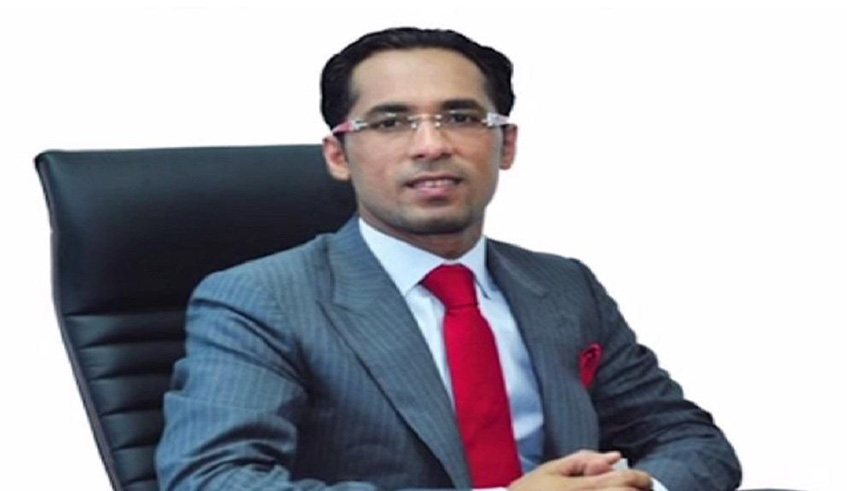 Dar es Salaam. Tanzania is being encouraged to implement deliberate economic policies aimed at creating dollar billionaires and enhancing its global economic influence. According to a new wealth report, the country currently has only one dollar billionaire and a limited number of high-net-worth individuals. The Africa Wealth Report 2023 indicates that Tanzania has 2,400 individuals with a net worth exceeding $1 million. Out of these, only six have assets above $100 million, while the country has just one billionaire despite being the second-largest economy in East Africa. Also read: 435 Tanzanians join the billionaires' club - The Citizen Tanzania While the number of millionaires has risen by 20 percent over the past decade, economists believe this figure could be much higher if the country had strategic policies to support fast-growing local investors capable of expanding into international markets. "The government could significantly boost some of our wealthy entrepreneurs by matching or even partially matching their capital. That alone could reduce our reliance on imports," said Dar es Salaam-based entrepreneur Amina Salum. Experts cite the United States and China as examples of countries that have used state support to create global economic powerhouses. In 2024 alone, the US government allocated over $180 billion in subsidies to domestic companies. Firms such as Boeing, Intel, Amazon and Tesla have benefited from subsidies, tax exemptions and government-backed loans to support research, manufacturing and exports. Such policies have enabled the US to remain a global tech leader, create millions of jobs and use multinational corporations as ambassadors of national influence. China, through institutions like the China Development Bank, has extended low-interest loans and subsidies to companies such as CCCC and China Railway Engineering Corporation, enabling them to execute infrastructure projects across Africa and Asia. Backed by their government, these companies have expanded aggressively, securing contracts in many countries, strengthening China’s global economic influence. Level playing field no longer enough Tanzania has long promoted a “level playing field” approach for all businesses. But analysts say this neutral policy risks holding back local firms with the potential to create wealth and export influence. "Tanzania needs a strategy to support businesses that have proven capacity to create jobs, grow exports and increase tax revenues," said Prof Abel Kinyondo, an economist at the University of Dar es Salaam. He said targeted support could include direct financial subsidies, time-limited tax relief to reduce operating costs and credit guarantees to help companies access large-scale capital. "Strategic preferential treatment works. Ethiopia is already applying it in aviation. Their national airline is now among the best in Africa because it enjoys specific government support," he said. Prof Kinyondo emphasized the need for strong oversight and transparency, saying only experienced, high-performing entrepreneurs should be considered for such support. Another economist, Prof Dickson Pastory of the College of Business Education, said empowering local investors can also enhance national security by reducing dependency on external suppliers for essential goods. "For crucial sectors, supporting domestic production guarantees supply. It also improves Tanzania’s competitiveness in the global economy," he said. While financial subsidies may be challenging for developing countries, Prof Pastory said tax exemptions could achieve similar results. "Reducing tax burdens allows businesses to expand and create more jobs, ultimately boosting national GDP," he noted. BoT support mechanisms already in place The Bank of Tanzania (BoT) has on several occasions expressed willingness to support local businesses through the Export Credit Guarantee Scheme (ECGS) and the SME Credit Guarantee Scheme (SME-CGS). These aim to help private-sector players with bankable projects access financing even when they lack sufficient collateral. In June 2023, at the height of the dollar shortage, BoT governor Emmanuel Tutuba said the central bank had taken steps to encourage domestic production and promote import substitution. He said the BoT board had visited several strategic sites to assess opportunities to boost exports and foreign exchange earnings. "We wanted to know what investors need to scale up production and exports, especially in terms of financial support." Provided by SyndiGate Media Inc. (Syndigate.info).
Dar es Salaam. Tanzania is being encouraged to implement deliberate economic policies aimed at creating dollar billionaires and enhancing its global economic influence. According to a new wealth report, the country currently has only one dollar billionaire and a limited number of high-net-worth individuals. The Africa Wealth Report 2023 indicates that Tanzania has 2,400 individuals with a net worth exceeding $1 million. Out of these, only six have assets above $100 million, while the country has just one billionaire despite being the second-largest economy in East Africa. Also read: 435 Tanzanians join the billionaires' club - The Citizen Tanzania While the number of millionaires has risen by 20 percent over the past decade, economists believe this figure could be much higher if the country had strategic policies to support fast-growing local investors capable of expanding into international markets. "The government could significantly boost some of our wealthy entrepreneurs by matching or even partially matching their capital. That alone could reduce our reliance on imports," said Dar es Salaam-based entrepreneur Amina Salum. Experts cite the United States and China as examples of countries that have used state support to create global economic powerhouses. In 2024 alone, the US government allocated over $180 billion in subsidies to domestic companies. Firms such as Boeing, Intel, Amazon and Tesla have benefited from subsidies, tax exemptions and government-backed loans to support research, manufacturing and exports. Such policies have enabled the US to remain a global tech leader, create millions of jobs and use multinational corporations as ambassadors of national influence. China, through institutions like the China Development Bank, has extended low-interest loans and subsidies to companies such as CCCC and China Railway Engineering Corporation, enabling them to execute infrastructure projects across Africa and Asia. Backed by their government, these companies have expanded aggressively, securing contracts in many countries, strengthening China’s global economic influence. Level playing field no longer enough Tanzania has long promoted a “level playing field” approach for all businesses. But analysts say this neutral policy risks holding back local firms with the potential to create wealth and export influence. "Tanzania needs a strategy to support businesses that have proven capacity to create jobs, grow exports and increase tax revenues," said Prof Abel Kinyondo, an economist at the University of Dar es Salaam. He said targeted support could include direct financial subsidies, time-limited tax relief to reduce operating costs and credit guarantees to help companies access large-scale capital. "Strategic preferential treatment works. Ethiopia is already applying it in aviation. Their national airline is now among the best in Africa because it enjoys specific government support," he said. Prof Kinyondo emphasized the need for strong oversight and transparency, saying only experienced, high-performing entrepreneurs should be considered for such support. Another economist, Prof Dickson Pastory of the College of Business Education, said empowering local investors can also enhance national security by reducing dependency on external suppliers for essential goods. "For crucial sectors, supporting domestic production guarantees supply. It also improves Tanzania’s competitiveness in the global economy," he said. While financial subsidies may be challenging for developing countries, Prof Pastory said tax exemptions could achieve similar results. "Reducing tax burdens allows businesses to expand and create more jobs, ultimately boosting national GDP," he noted. BoT support mechanisms already in place The Bank of Tanzania (BoT) has on several occasions expressed willingness to support local businesses through the Export Credit Guarantee Scheme (ECGS) and the SME Credit Guarantee Scheme (SME-CGS). These aim to help private-sector players with bankable projects access financing even when they lack sufficient collateral. In June 2023, at the height of the dollar shortage, BoT governor Emmanuel Tutuba said the central bank had taken steps to encourage domestic production and promote import substitution. He said the BoT board had visited several strategic sites to assess opportunities to boost exports and foreign exchange earnings. "We wanted to know what investors need to scale up production and exports, especially in terms of financial support." Provided by SyndiGate Media Inc. (Syndigate.info).